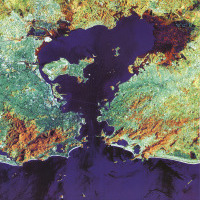
Lise F Sedrez
Lise Sedrez is associate professor at the Instituto de Historia, UFRJ, and was Associate Professor at the History Department at California University, Long Beach. She is the co-editor of the book series Latin American Landscapes with the University of Arizona Press, and the coordinator of the Graduate Program on Social History (PPGHIS) at UFRJ. She holds a M.S. in Environmental Policy Studies, from New Jersey Institute of Technology, and a Ph.D. in History from Stanford University, where she was awarded a Lieberman Fellowship for excellence in teaching. Lise also taught at Ramapo College, New Jersey, The College of William & Mary, in Williamsburg, Virginia, and Faculdade da Cidade, in Rio de Janeiro, and worked for environmental non-profit organizations in Brazil, such as Greenpeace, IBASE and WWF. She still keeps up-to-date with her environmental activism. Lise has published her work in Italy, Colombia, Brazil and USA. Her research interests include environmental history of Latin America, urban history, history of science and history of disasters.
Lise loves fencing and is a great cook—she has an award-winning tiramisu recipe. When she is not obsessively surfing the Internet, she enjoys trekking, dancing and traveling.
Supervisors: Zephyr Frank, John Wirth, John Opie, and Margarida de Souza Neves
Lise loves fencing and is a great cook—she has an award-winning tiramisu recipe. When she is not obsessively surfing the Internet, she enjoys trekking, dancing and traveling.
Supervisors: Zephyr Frank, John Wirth, John Opie, and Margarida de Souza Neves
less
InterestsView All (9)
Uploads
Papers by Lise F Sedrez
Each of the chapters in this volume addresses specific struggles in the history of environmental movements, for example over national parks, species protection, forests, waste, contamination, nuclear energy and expropriation. A diverse range of environments and environmental actors are covered, including the communities in the Amazonian Forest, the antelope in Tibet, atomic power plants in Europe and oil and politics in the Niger Delta. The chapters demonstrate how these conflicts make visible the intricate connections between local and global, the body and the environment, and power and nature. A History of Environmentalism tells us much about transformations of cultural perceptions and ways of production and consuming, as well as ecological and social changes.
More than offering an exhaustive picture of the entire environmentalist movement, A History of Environmentalism highlights the importance of the experience of environmentalism within local communities. It offers a worldwide and polyphonic perspective, making it key reading for students and scholars of global and environmental history and political ecology.
For Brazilian environmental historians, the Museum is a particularly cherished space. It is connected to the Universidade Federal do Rio de Janeiro and generations of Brazilian scientists have graduated there. Many environmental historians have explored the archives of the National Museum, taken classes there, studied the paleontology collections, written theses, articles and books about the artifacts and those who collected the precious artifacts, and about what the Museum meant to national science and to the concept of nature in Brazil.
As Brazil is preparing to host the 3rd World Congress of Environmental History in July 2019, in Florianópolis, this loss is deeply felt. In light of this devastating loss, we ask for help from the international community of environmental historians. If you have researched at the National Museum, if you have images of the collections, the artifacts, or any related documents, please send copies to museunacional.ufrj.br/memoria (it is an institutional link.) If your institution would like to support the National Museum of Brazil in a more concrete way, write to falecomdiretor@mn.ufrj.br
Due to these exceptional circumstances, the Organizing Committee of the 3rd World Congress of Environmental History agreed to extend the deadline for proposal submissions until October 1st.
We hope this extension will allow for everyone interested in taking part in proposals for the academic program of this exciting conference.